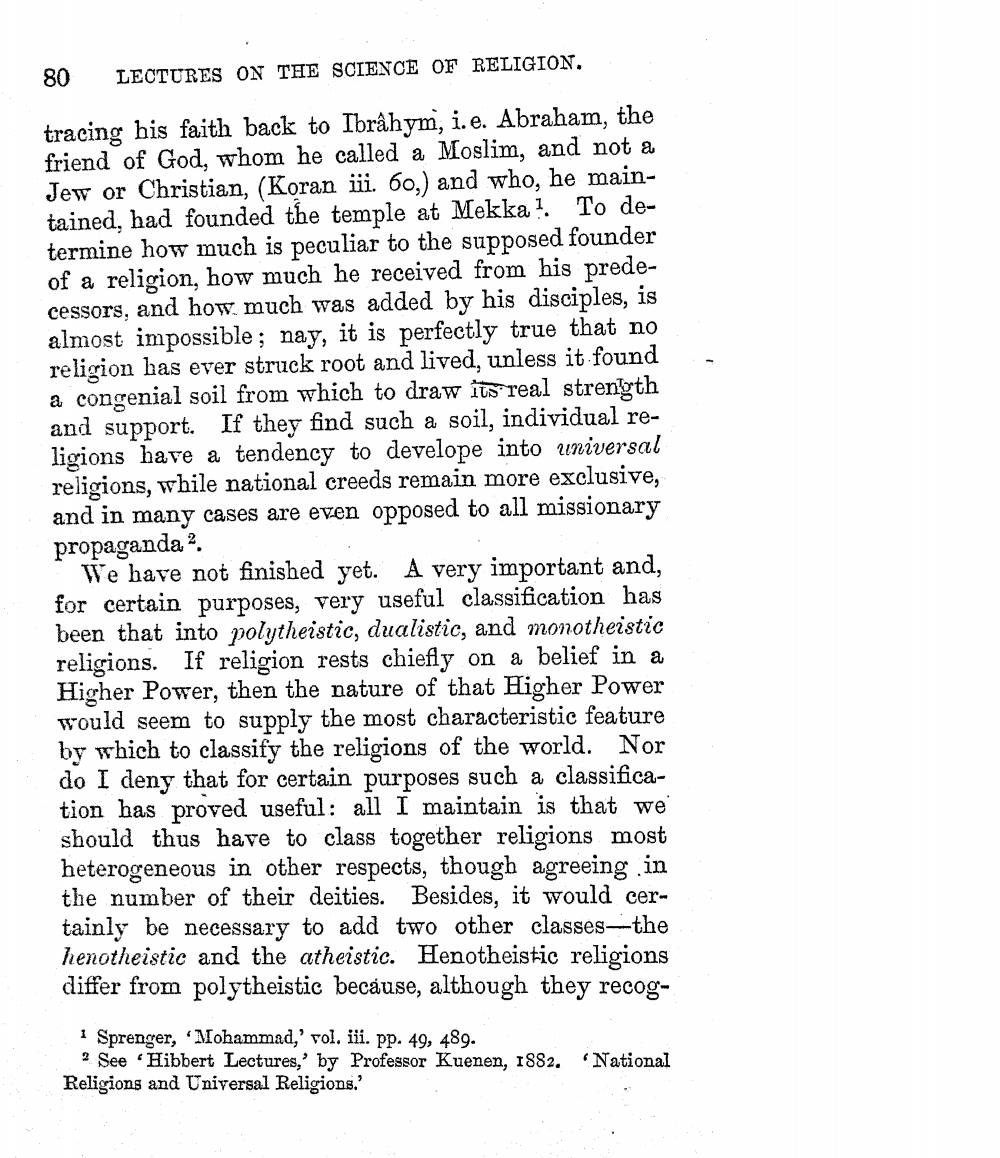________________
80
LECTURES ON THE SCIENCE OF RELIGION.
tracing his faith back to Ibrâhym, i. e. Abraham, the friend of God, whom he called a Moslim, and not a Jew or Christian, (Koran iii. 60,) and who, he mainTo detained, had founded the temple at Mekka!. termine how much is peculiar to the supposed founder of a religion, how much he received from his predecessors, and how much was added by his disciples, is almost impossible; nay, it is perfectly true that no religion has ever struck root and lived, unless it found a congenial soil from which to draw its real strength and support. If they find such a soil, individual religions have a tendency to develope into universal religions, while national creeds remain more exclusive, and in many cases are even opposed to all missionary propaganda 2.
We have not finished yet. A very important and, for certain purposes, very useful classification has been that into polytheistic, dualistic, and monotheistic religions. If religion rests chiefly on a belief in a Higher Power, then the nature of that Higher Power would seem to supply the most characteristic feature by which to classify the religions of the world. Nor do I deny that for certain purposes such a classification has proved useful: all I maintain is that we' should thus have to class together religions most heterogeneous in other respects, though agreeing in the number of their deities. Besides, it would certainly be necessary to add two other classes-the henotheistic and the atheistic. Henotheistic religions differ from polytheistic because, although they recog
1 Sprenger, 'Mohammad,' vol. iii. pp. 49, 489.
2 See Hibbert Lectures,' by Professor Kuenen, 1882. 'National Religions and Universal Religions.'




